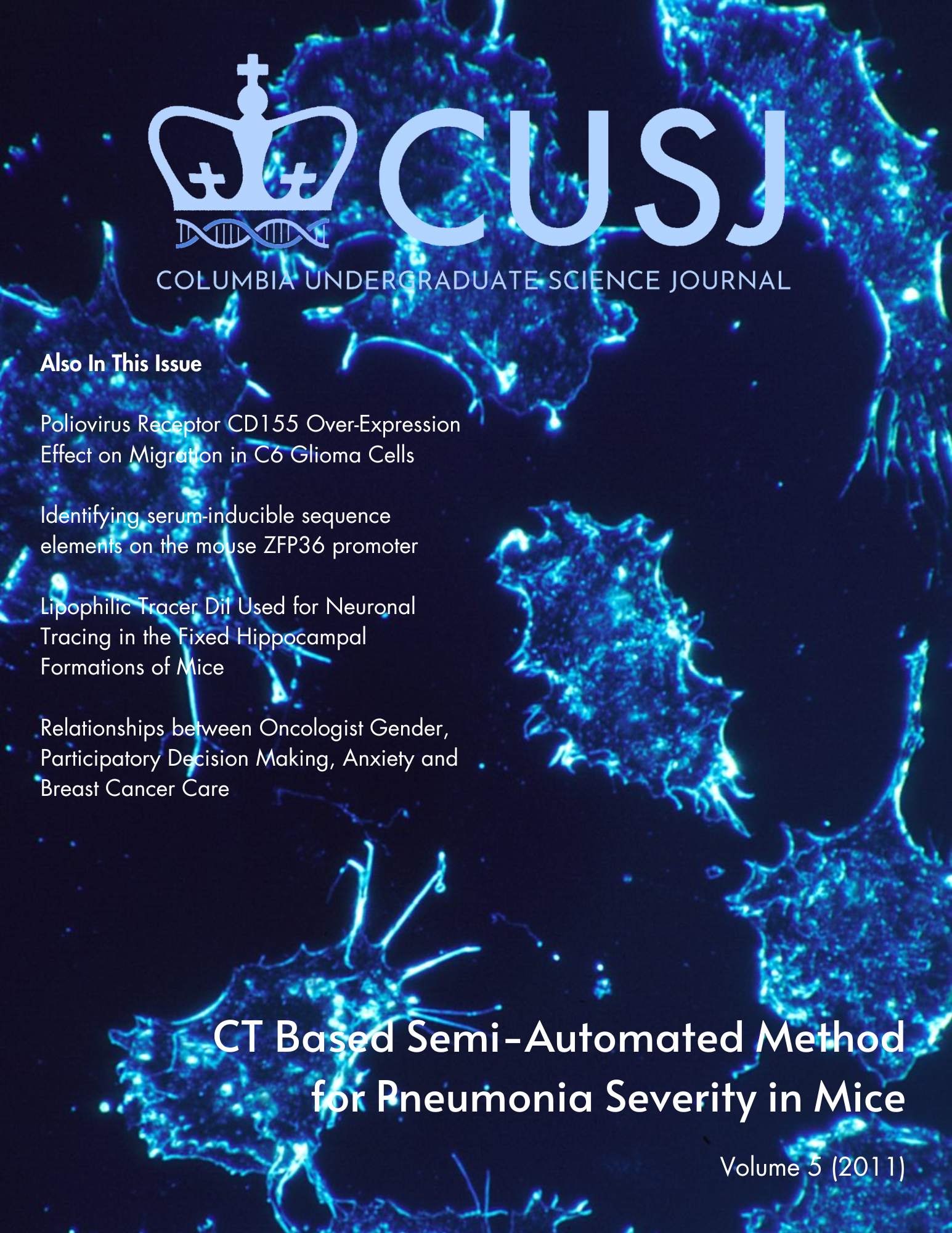Abstract
Zinc finger protein 36 (ZFP36) is an RNA-binding protein that downregulates the translation of certain gene products by inducing the degradation of mRNA. ZFP36 is an immediate-early gene: its transcription is activated directly following appropriate cellular stimuli, without any need for intervening protein synthesis. Prominent mRNA targets of ZFP36 are tumor necrosis factor (TNF), epidermal growth factor (EGF) and c-fos. As defects in the c-fos and EGF pathways have been consistently found in cancers, ZFP36 is thought to be a tumor-suppressor. ZFP36 also is responsible for the suppression of TNF, giving it an additional role in the control of the inflammatory immune response. Thus, studying the regulation and action of ZPF36 may yield insights into mechanisms underlying cancer and inflammatory syndromes. To examine the regulation of ZFP36, two conserved regions upstream of the start of transcription were assayed for their ability to confer serum induction. Using a luciferase reporter gene system in HeLa cells, we show that neither region examined is induced by serum.

